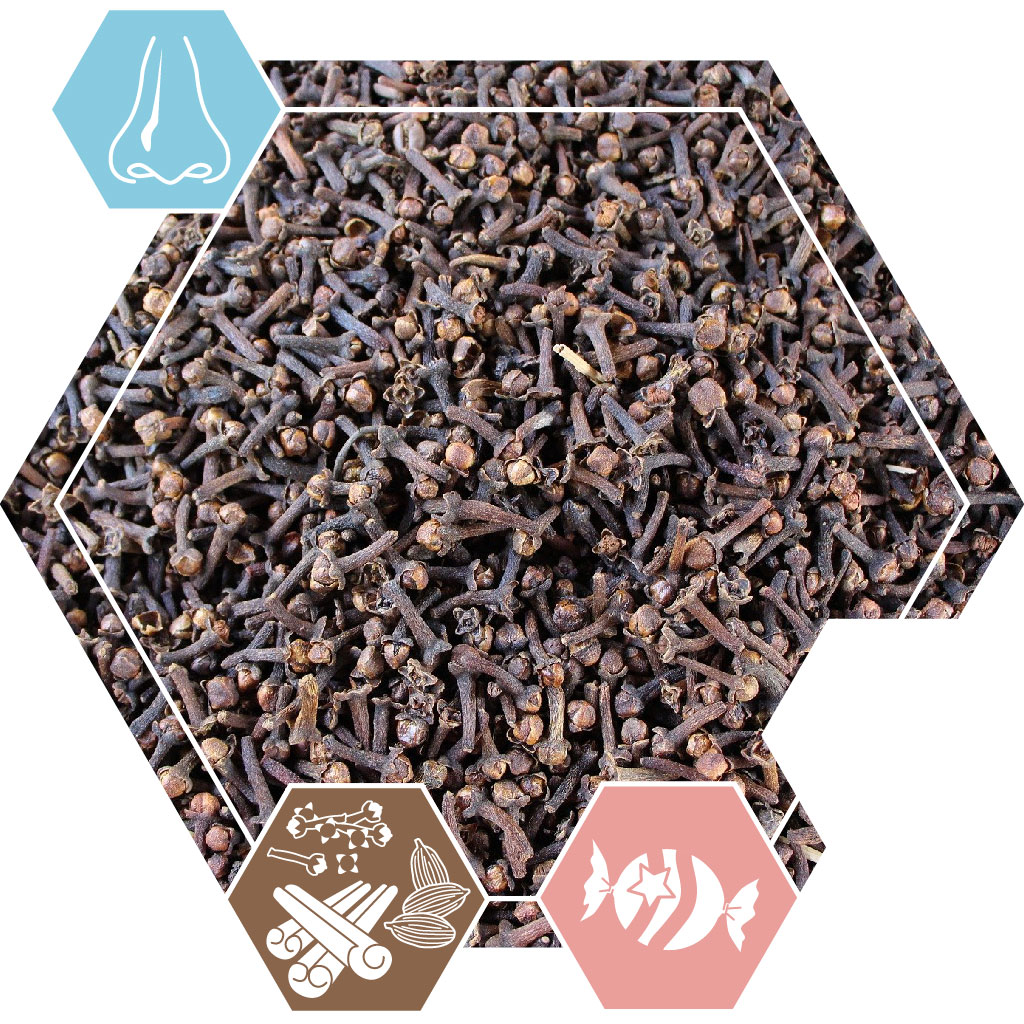Fragrance raw material
Description
"This text has been automatically translated and may contain errors.
Our clove essential oil is made by water distillation from the 'buds' of Syzygium aromaticum or the clove bush. The cloves are Organically grown The 'nails' - a somewhat outdated word for nail, they look like, are in fact the dried, unopened flower buds of this shrub.
The English name of cloves is clove (bud), the French name is girofle (clou) and the German name is nelke.
Indication of the composition:
> 25% - Eugenol
5-10 % - beta-Caryophyllene
1-2 % - Furfurol, Methyl Salicylate
Clove nail oil is mainly heart and top note in perfumes. The scent at the top is a recognizable spice scent of eugenol, with woody touches next to it. In the heart, the scent becomes less sweet: more dry. The eugenol scent remains perceptible deep into the heart.
Cloves pair well with lavender, rose, geranium, bergamot, vanilla, spicy floral scents like carnation, spice scents, and citrus scents. Indispensable in the traditional English Windsor soap. In soap, the oil can be used in combination with other stronger scents, but always causes a brown discoloration.
Clove oil is also used as a preservative, especially in technical products such as painter's paint and animal glue. It is less useful as a preservative in cosmetics because the dose required for preservation is too high for practical and safe use.
Nothing has been added to the oil, it is 100% pure essential oil.
Clove oil is harmful when in contact with the skin and if swallowed. Further irritating to eyes, skin and respiratory tract. Swallowing can cause lung damage. Clove oil contains eugenol and isoeugenol, substances that some people have an allergic reaction to.
CAS No TSCA: 8000-34-8
CAS No EU: 84961-50-2
EC No: 284-638-7
FEMA No: 2324
INCI: EUGENIA CARYOPHYLLUS BUD OIL"




